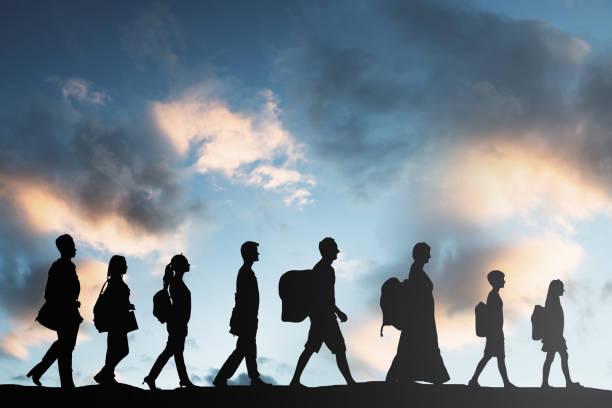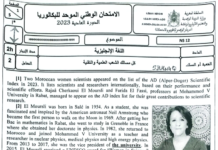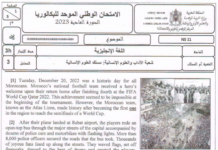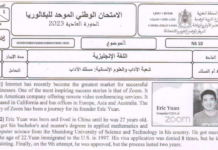The exam’s Comprehension Text
“when I just came to America I used to cry in front of my classmates. I used to just put my head down and cry,” admits Belize Munezero, 14. Belize is a refugee from Burundi, central Africa. After having escaped the civil war there, she resettled in Atlanta. She is now a new student at Lithonia High School. Belize fits the definition of “refugee” used by the US committee for refugees. she fled to a different country because of a fear of discrimination based on race, religion, nationality, social group, political opinion and armed conflict.
At the beginning of 2003, there were an estimated 10.3 million refugees worldwide according to UNHCR (United Nations high commissioner for refugees). That means that there is a new refugee every 21 seconds, says Amnesty International, and the number is sharply rising. They come from different parts of the world, including Somalia, Bosnia, Afghanistan, Iraq and Sudan. Many of these refugees are teenagers who attend schools such hours Clarkston High School, where at least 52 countries are represented. teen refugees must learn to adjust in the American schools while coping with the fresh memories of life in the refugee camp.
“I saw a lot of tents, misery and crying. It was muddy and very sad,” says Shpresa Aliu, a 13-year-old Albanian refugee who is now a seventh grade student. “There were like 300 people there, and more people were coming. There was only one store of food.” Shpresa lived in this refugee camp for five months.
“I remember everything. I remember for people with nothing and they didn’t have any work. It was really hard because people were dying without food, and people were going back to their country in spite of the horrors there,” says Fouad Saleh. He left his native country, Iraq, when he was five and lived in a refugee camp in Syria for nine years before joining Clarkston High school in the United States.
“There is a feeling of hopelessness,” explains Bryan Hudson, 16.” We constantly have to deal with a situation where we have no choices.” All teen refugees interviewed say no one leaves a refugee camp with the same attitudes they had come in with.
In refugee camps, the complete desperation provokes people to use creativity, stretching their imagination to bring relief to the gloomy atmosphere. “I remember some kids just playing. We tried to make things fun,” recalls Shpresa. Belize has similar memories. “Even Saturday we would play drums. We hated what was going on in the country so we would try to make it happy.”
National exam | Arts Stream | Catch-up Session 2007 with Answers





